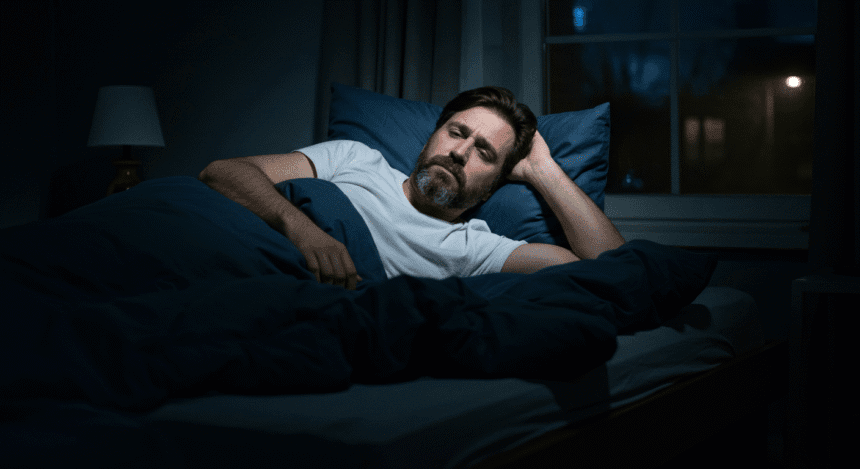There are a lot of issues that can lead to health problems. Insomnia is among them.
Sleep is a strong force in the maintenance of physical and mental health, yet millions of people do not get enough sleep. About 35% of American adults get fewer than seven hours of sleep each night, less than their bodies need to fully recover. Such chronic deficiency is not just a case of mild drowsiness — an estimated 50 to 70 million Americans are afflicted with sleep disorders. Even though sleep is as fundamental as food and water, 1 out of every 3 adults still fail to get the recommended amount on a daily basis, which leads to a cascade of health problems.
In patients who already have medical conditions, the problem gets worse. 23% to 73% of patients with heart failure have symptoms of insomnia, which complicates recovery and daily functioning even further. Research has shown that people with insomnia have a 45% higher risk of cardiovascular disease, linking bad sleep to long-term damage that can affect major organs. When sleep is disrupted night after night, the body has fewer chances to deal with stress, repair tissues, or keep inflammation at bay — all of which contribute to overall health hazards.
Ageing brings numerous problems for many of us. One of these is poor sleep, which often contributes to health problems and, in some cases, can cause certain health problems. It is very common for older adults to experience gradual changes in their ability to get to sleep. Something we hear regularly from elderly people is the lament that when once they could fall asleep at the drop of a hat, now they either can’t fall asleep or, if they do, they can’t remain asleep. This is something we tackled in a previous article.
Why sleep changes with age
Older people become more prone to sleep disturbances such as excessive noise, temperature fluctuations or irregular bedtime routines. Some health conditions or medications disturb sleep. Conditions like depression can also have a detrimental effect on sleep.
In some, where there are no health or medication issues, sleep can still be elusive. This is down to changes in the body’s internal clock, the circadian rhythms which tell us when we feel hungry and when we feel tired.
Why good sleep is important
Good sleep is important at any age but even more so when we get older. When the inability to sleep becomes ingrained this can affect all aspects of physical health because it makes us feel under the weather and energy depleted. It can increase the risk of illnesses such as diabetes and can make us more prone to accidents.
Lack of sleep can have a severe effect on the brain. Research has shown:
- Poor sleep affects thinking skills
- Getting an average seven to eight hours of sleep a night benefits mental and physical health
- A regular sleep/wake routine is vital for better overall health
How a live-in carer can help you to sleep better
A carer living with you 24/7 can help you establish and maintain a consistent sleep schedule by ensuring you go to bed and wake up at the same time every day. This may be difficult initially but eventually it will help to regulate your body clock. The live-in carer can ensure pre-bedtime medications are taken on time to minimise sleep disruption.
Before you go to bed, your carer will make sure your food and drink intake will not lead to disruptions due to thirst or frequent bathroom trips.
Creating a sleep-friendly environment
Your caregiver can relieve your anxiety around mobility issues by helping you to get in and out of bed safely. They can help create the perfect ambience for sleeping by adjusting lighting, room temperature and bedding. All of this reduces nighttime anxiety and disturbances while ensuring your comfort.
For those with dementia or who are afraid of the dark, having a carer there to provide companionship and reassurance helps to reduce any after-dark restlessness, worry or confusion.
Knowing that there is someone on hand at all times to assist with your nighttime needs offers peace of mind and reduces anxiety and stress, leading to a more consistent deeper restful sleep to help you face the morning feeling rejuvenated and ready to face the day.









